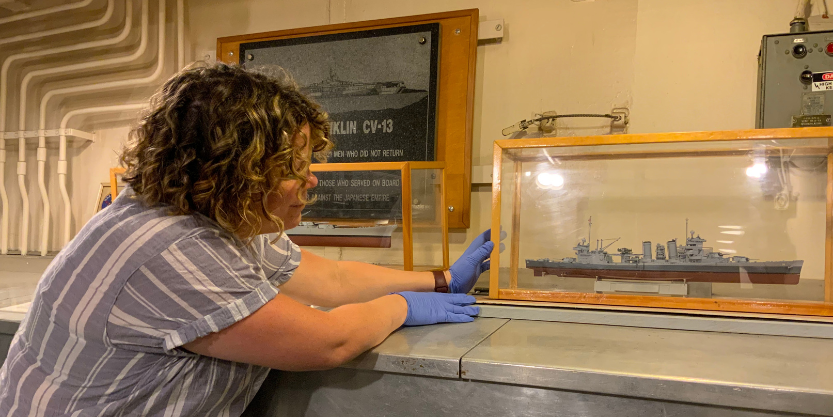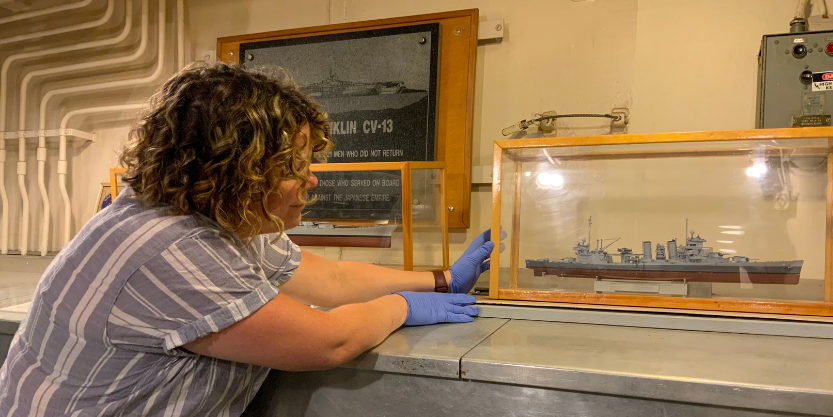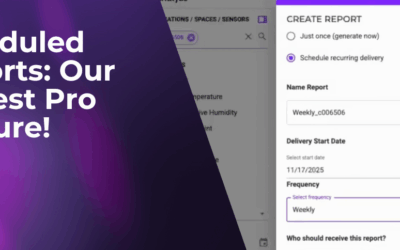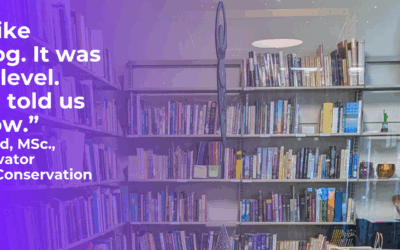FAIC’s Collections Assessment for Preservation (CAP) and Conserv are partnering to help small and mid-sized museums manage their collection environments with confidence.
What is the Small Collections Monitoring Program?
We, at Conserv, developed the Small Collections Monitoring Program because we receive used, but functioning data loggers as trade-ins from institutions that have purchased environmental monitoring subscriptions.
Recognizing both Conserv’s commitment to sustainability and the needs of smaller cultural institutions that might not have the funds to start an environmental monitoring program, Conserv decided to give traded-in loggers a second life by making them available at no cost to small institutions and providing training on using data loggers to manage collection environments with confidence.
A new partner for preservation
We have recently teamed up with the FAIC’s Collections Assessment for Preservation (CAP) program* as it seemed like a terrific opportunity to accomplish Conserv’s goals for SCMP to distribute data logger trade-ins, while also furthering the goals of the CAP program.
The CAP program provides general conservation assessments to small and mid-sized museums. Collections care professionals who perform the assessments often comment on the need for better climate data in advance of their assessments. Environmental information helps assessors to provide more complete advice on temperature and relative humidity needs in the collections they visit.

Melissa King performing CAP at the USS Salem in Quincy, Massachussetts. Photo credit: Lisa Goldberg
One of the primary recommendations I make as a CAP assessor is that an institution collect environmental data so that I can make some preliminary observations about trends in temperature and relative humidity, mechanical systems (if extant), and storage containments. I have always recommended that institutions try to purchase a few data loggers and set up a rudimentary monitoring program prior to the onsite visit, and I am excited that Conserv will be able to help those institutions that are unable to purchase loggers by providing equipment and training that can help jumpstart the CAP process.
CAP Assessor
Monitors, training, free software, and support
Participants in the 2022 CAP program will be able to request up to four environmental monitors on an as-available basis, with a total of up to fifty museums supported. Conserv will also provide access to and training for our free software, which gives users simple but powerful tools for environmental monitoring. Nicole Grabow, the Director of Preventive Conservation at the Midwest Art Conservation Center is enthusiastic about our software.
The Conserv software is targeted specifically for collections care – and it is very easy to use. I find the visual graphs and ability to overlay local weather data so helpful in illustrating how a space is doing to protect collections from environmental fluctuations. Also, the Conserv staff is extremely knowledgeable about preservation. It’s great to have a tool made just for us.
Nicole Grabow
This combination of training and data loggers will not only help CAP assessors receive a more complete picture of the collections environment before their assessments, it will also provide the staff of CAP recipient museums with tools they need to make better decisions and confidently care for their collections going forward.
*The CAP program is made possible in part by support from the Institute of Museum and Library Services.
If you have any questions about environmental monitoring, integrated pest management, or just want to talk about preventative conservation, please reach out to us! Don’t forget to check out our blog or join our community of collections care professionals where you can discuss hot topics, connect with other conservators or even take a course to get familiar with the Conserv platform.




